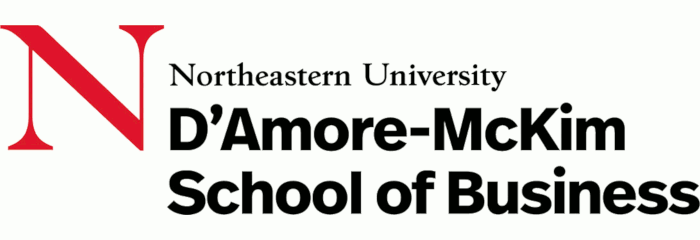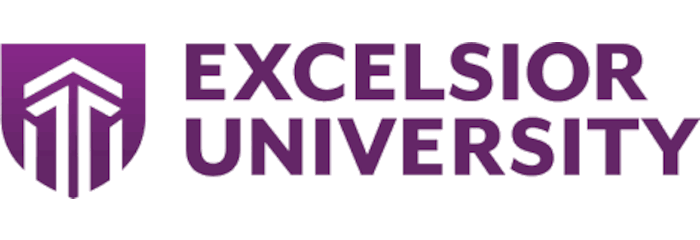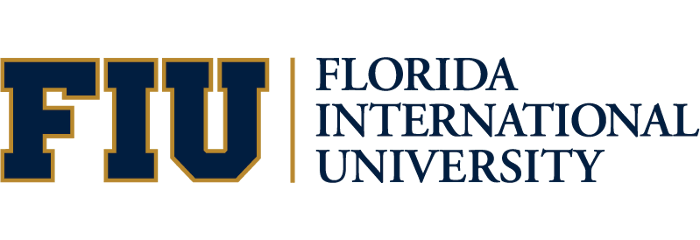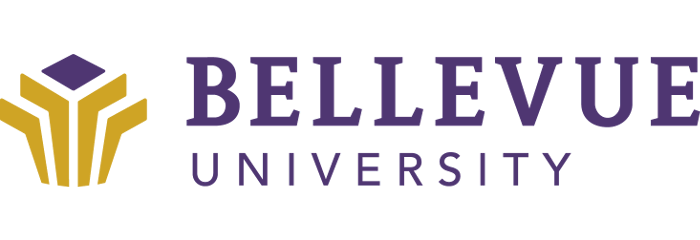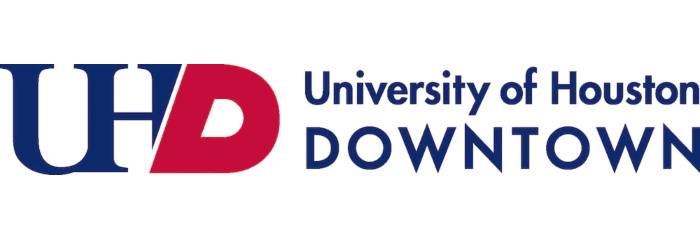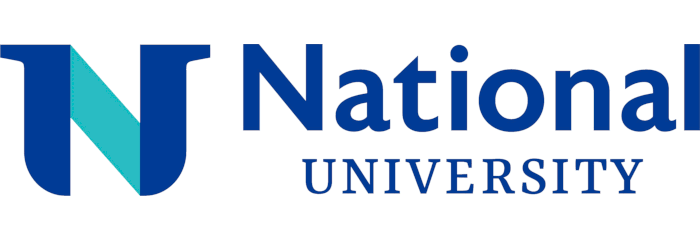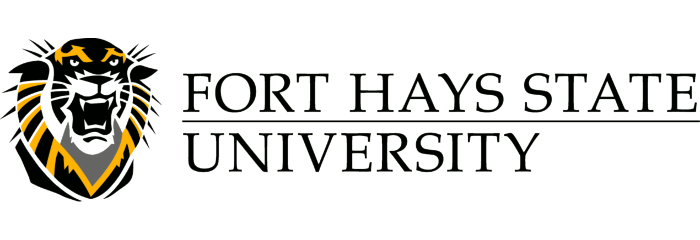Earning an online bachelor's degree in finance involves mastering the evaluation of financial statement data, utilizing technological tools for effective portfolio management, and honing the ability to make strategic business decisions. The program also offers insights into how real-world legal and economic influences shape monetary systems. An online finance degree not only opens doors to a diverse range of career opportunities but also serves as a stepping stone for those looking to advance their expertise by pursuing a master's in finance.
Our rankings list of the best online finance degrees prioritizes schools with high Salary Scores and significant online enrollment, aiming to guide prospective students to make the most informed decisions. View our methodology for more details about our list, or learn about OnlineU.
#1 University of Minnesota - Online
- Salary Score: A
- Median Earnings: $87,799
- Online Enrollment: 2,392 enrolled
- Annual Tuition: $23,559
The University of Minnesota Online (UMN), which is a public institution, offers an online Bachelor of Science in Finance. In addition to classes in management, marketing, business communications, and accounting, students enrolled in this program take courses such as Managerial Finance, Corporate Finance, Financial Modeling and Valuation, and Investments. Potential careers for graduates include personal financial advisors, budget analysts, and investment bankers, to name a couple of options.
Why we like them: To graduate with this finance degree from UMN, you must also complete an internship. We believe this hands-on experience helps bridge the gap between online academia and the professional world. Internships can also help you build a professional network, connecting you with industry professionals and potential future employers. Finally, this can allow you to explore different career paths, helping you make informed decisions about your future and potentially confirming your career interests.
- Salary Score: A
- Median Earnings: $87,799
- Financial Aid Recipients: 85%
- Avg. Aid Package: $10,557
- Avg. Graduation Rate: 77%
- Retention Rate: 87%
- Recommend Rate: N/A
- School Type: Nonprofit (Public)
#2 Oklahoma State University - Main Campus
- Salary Score: B
- Median Earnings: $72,317
- Online Enrollment: 1,666 enrolled
- Annual Tuition: $25,754
At Oklahoma State University - Main Campus (OSU), students can complete an online Bachelor of Science in Business Administration - Finance, which gives students a strong foundation in wealth management, investing, and budgeting. Example coursework covers topics from accounting to data analysis, with core requirements including Advanced Accounting Tools and Technologies, Microeconomic Principles for Business, and Strategic Management. Future careers for graduates include financial analysts, commercial bankers, and investment advisors.
Why we like them: Coursework goes beyond technical training with courses dedicated to building career-planning skills. OSU uses a block rate format for tuition, meaning you'll see reduced costs by taking 16 to 18 credits per semester. This format also encourages you to finish your finance degree within the traditional four-year time frame.
- Salary Score: B-
- Median Earnings: $72,317
- Financial Aid Recipients: 98%
- Avg. Aid Package: $10,621
- Avg. Graduation Rate: 65%
- Retention Rate: 83%
- Recommend Rate: 95%
- School Type: Nonprofit (Public)
#3 Northwood University - Michigan
- Salary Score: B-
- Median Earnings: $68,565
- Online Enrollment: 849 enrolled
- Annual Tuition: $31,600
At Northwood University - Michigan (NU), students may pursue finance through an online Bachelor of Business Administration in Finance. The undergraduate degree explores finance from an entrepreneurial viewpoint, encouraging hands-on learning outside the classroom. Core coursework includes Financial Management, Applied Financial Analysis and Portfolio Management, and Chartered Financial Analyst Topics. An internship is also required. Potential jobs for graduates include loan officers, risk managers, and financial sales representatives.
Why we like them: As an online finance student, you'll take foundation courses focused on student success and leadership. Once graduated, you'll be prepared to take the Series 7 exam, otherwise known as the General Securities Representative Qualification Examination (GS). A four-year bachelor/MBA track is also available if you're interested in pursuing graduate studies in finance simultaneously and accelerating your education.
- Salary Score: B-
- Median Earnings: $68,565
- Financial Aid Recipients: 100%
- Avg. Aid Package: $20,925
- Avg. Graduation Rate: 62%
- Retention Rate: 81%
- Recommend Rate: 88%
- School Type: Nonprofit (Private)
#4 Northeastern University
- Salary Score: B-
- Median Earnings: $68,364
- Online Enrollment: 1,090 enrolled
- Annual Tuition: $60,192
At Northeastern University (NEU), students interested in finance can pursue an online Bachelor of Science in Finance and Accounting Management. The curriculum uses business as the foundation for exploring financial management and accounting. Coursework examines industry regulations and organizational behaviors through E-Commerce Systems, Financial Statement Analysis, and Financial Institutions and Markets classes. A business strategy capstone project is also required. Graduates may find careers as accountants, auditors, and financial specialists.
Why we like them: NEU uses an experiential learning model to encourage the development of practical skills and give online students a headstart on their careers. You can use short-term cooperative or project-based work opportunities through the College of Professional Studies. Each work experience lasts three to six months and can be part-time or full-time, paid, or unpaid.
- Salary Score: B-
- Median Earnings: $68,364
- Financial Aid Recipients: 85%
- Avg. Aid Package: $42,331
- Avg. Graduation Rate: 91%
- Retention Rate: 97%
- Recommend Rate: 90%
- School Type: Nonprofit (Private)
#5 Missouri State University
- Salary Score: N/A
- Median Earnings: $68,206
- Online Enrollment: 1,965 enrolled
- Annual Tuition: $17,144
Interested finance students at Missouri State University (MSU) can take an online Bachelor of Science in Finance. Foundationally, the curriculum covers various aspects of the financial industry, including the principles, management techniques, and laws that guide it. Students participate in courses such as Financial Markets and Investments, Portfolio Management and Alternative Assets, and Security Valuation within this finance program. Upon completion, graduates can explore portfolio management, financial planning, and brokering career paths.
Why we like them: There are three specializations available: (1) Corporate and Investments, (2) Financial Planning, and (3) Fintech, each requiring between 21 and 24 credits. These options allow students to delve deeply into their preferred area of expertise and prepare for a niche in the job market. Additionally, the Missouri State Career Center is there to assist you in finding employment that matches your degree focus.
- Salary Score: N/A
- Median Earnings: $68,206
- Financial Aid Recipients: 100%
- Avg. Aid Package: $8,049
- Avg. Graduation Rate: 58%
- Retention Rate: 76%
- Recommend Rate: 78%
- School Type: Nonprofit (Public)
#6 Southern New Hampshire University Online
- Salary Score: N/A
- Median Earnings: N/A
- Online Enrollment: 116,225 enrolled
- Annual Tuition: $9,600
At Southern New Hampshire University (SNHU), students can pursue an online Bachelor of Science in Finance, where they can take a CFP Board-registered concentration in Financial Planning. This online finance degree is designed to develop the expertise to craft comprehensive financial plans tailored to the needs of clients. Faculty delve into the intricacies of both domestic and global economic environments to help students understand how financial systems operate on various scales. The bachelor's in finance opens doors to various employment opportunities in industries like banking, investment firms, and insurance.
Why we like them: SNHU has the option to streamline your education by taking an accelerated finance degree program online, called the BS-to-MS pathway. This will potentially allow you to complete your entire master's program in as little as one year. And with this option, you can save money because you'll enroll in graduate-level courses at the undergraduate tuition rate.
- Salary Score: N/A
- Median Earnings: N/A
- Financial Aid Recipients: 81%
- Avg. Aid Package: $4,434
- Avg. Graduation Rate: 38%
- Retention Rate: 62%
- Recommend Rate: 61%
- School Type: Nonprofit (Private)
#7 Western Governors University
- Salary Score: N/A
- Median Earnings: N/A
- Online Enrollment: 107,952 enrolled
- Annual Tuition: $8,010
Western Governors University (WGU) offers students interested in finance an online Bachelor of Science in Finance. This degree combines technology with traditional financial practices to develop well-rounded graduates to work in the areas of cryptocurrency, fintech, and digital valuations. There are 40 required courses, including Personal Finance, Financial Management, and Innovation in Finance. An assessment-based capstone course is also required. Graduates can go after careers as investment analysts, financial directors, and actuaries.
Why we like them: Online financial students have no special admissions requirements. ACT and SAT entrance exams are not required, and transfer credits are accepted within WGU's competency-based curriculum structure. Even if you haven't earned an associate degree, you may qualify for additional admissions waivers based on your transcripts. These policies ensure accessibility for online students, facilitating a seamless entry into the program regardless of prior degree attainment.
- Salary Score: N/A
- Median Earnings: N/A
- Financial Aid Recipients: 61%
- Avg. Aid Package: $4,798
- Avg. Graduation Rate: 49%
- Retention Rate: 65%
- Recommend Rate: 70%
- School Type: Nonprofit (Private)
#8 University of Phoenix
- Salary Score: N/A
- Median Earnings: $59,017
- Online Enrollment: 66,803 enrolled
- Annual Tuition: $9,552
The University of Phoenix (UOPX) students can pursue finance through an online Bachelor of Science in Business (with a Financial Planning Certificate). This online finance degree imparts an understanding of business practices, organizational behaviors, logistics operations, and financial planning skills. Core business courses include Principles of Accounting, Finance for Business, and Managing with a Global Mindset. Careers may be available as financial managers, planners, and advisors.
Why we like them: The 14 required electives include six certificate courses that explore business analytics and leadership. Once completed, you'll earn a Financial Planning Certificate in addition to your BS in finance. We believe this can better prepare you for entering the competitive world of finance after graduation. You can also learn about your financial plan to pay for college through UOPX's finance team, which can assist with budgeting, financial aid, and understanding fee structures.
- Salary Score: N/A
- Median Earnings: $59,017
- Financial Aid Recipients: 90%
- Avg. Aid Package: $5,716
- Avg. Graduation Rate: 17%
- Retention Rate: 42%
- Recommend Rate: 61%
- School Type: For Profit
#9 University of Maryland Global Campus
- Salary Score: N/A
- Median Earnings: $67,603
- Online Enrollment: 37,793 enrolled
- Annual Tuition: $12,336
The University of Maryland Global Campus (UMGC), which is a public university, offers exclusively online degree programs, including an online Bachelor of Science in Finance. Finance majors take a mix of general business courses, such as Investments, Risk Management, and International Finance — with in-depth courses covering financial analysis, economics, and accounting. Tailored to equip individuals for diverse roles in finance, such as contract and budget management, financial analysis, banking, and risk assessment within corporate, government, and investment sectors, this program covers a wide spectrum of financial career pathways.
Why we like them: Students interested in earning Certified Financial Planner (CFP) certification can also opt for a course of study that prepares them to sit for the CFP exam. This enhances students' career prospects, as CFP certification is widely recognized and sought after by employers in the financial industry. This demonstrates the college's commitment to providing practical, career-focused education.
- Salary Score: N/A
- Median Earnings: $67,603
- Financial Aid Recipients: 67%
- Avg. Aid Package: $4,213
- Avg. Graduation Rate: 16%
- Retention Rate: 43%
- Recommend Rate: 60%
- School Type: Nonprofit (Public)
#10 Liberty University
- Salary Score: N/A
- Median Earnings: N/A
- Online Enrollment: 34,799 enrolled
- Annual Tuition: $11,700
Students at Liberty University (LU) who are interested in studying finance online can complete a Bachelor of Science in Business Administration - Finance. This degree aims to provide an understanding of financial efficiency in a business context, including building skills in investing and predictive analytics. Students encounter a business and finance core, with courses such as Intermediate Accounting, Money and the Financial System, and Financial Statement Analysis. Graduates may seek jobs as financial analysts, investment bankers, and loan officers.
Why we like them: LU's School of Business is accredited by the Accreditation Council for Business Schools and Programs (ACBSP), which analyzes programs based on the value they provide students in the professional business world. If you've already spent time in the workforce, you can earn credit for your professional experience.
- Salary Score: N/A
- Median Earnings: N/A
- Financial Aid Recipients: 98%
- Avg. Aid Package: $12,471
- Avg. Graduation Rate: 62%
- Retention Rate: 79%
- Recommend Rate: 57%
- School Type: Nonprofit (Private)
#11 Purdue Global
- Salary Score: N/A
- Median Earnings: N/A
- Online Enrollment: 32,313 enrolled
- Annual Tuition: $14,445
At Purdue Global, students may pursue finance through an online Bachelor of Science in Finance. There are 180 required credits that explore financial statement analysis and interpretation, investing, risk management, and financial laws. Core coursework includes Macroeconomics, Corporate Finance, and Business Statistics and Quantitative Analysis. Students must also complete a capstone project focused on developing real-world skills. Potential jobs for graduates include financial managers, budget analysts, and personal finance advisors.
Why we like them: This finance program features four concentrations: (1) Fintech, (2) General Finance, (3) Real Estate, and (4) Wealth Management and Financial Planning. Professional financial experience can earn you college credits, and if you're an employee of an approved corporate partner, you may even be eligible for reduced tuition costs.
- Salary Score: N/A
- Median Earnings: N/A
- Financial Aid Recipients: 60%
- Avg. Aid Package: $8,815
- Avg. Graduation Rate: 28%
- Retention Rate: 17%
- Recommend Rate: 73%
- School Type: Nonprofit (Public)
#12 Excelsior University
- Salary Score: N/A
- Median Earnings: N/A
- Online Enrollment: 15,260 enrolled
- Annual Tuition: $0
At Excelsior University, students interested in studying finance can pursue an online Bachelor of Science in Business - Finance. This program features a business core that explores accounting, finance, law, technology, and marketing. It also requires a capstone project. Some of the finance concentration coursework includes International Finance, Principles of Insurance, and Risk Management Concepts and Applications courses. Future careers for graduates may include cost engineers, financial analysts, and investment banking officers.
Why we like them: You can transfer up to 113 credits with prior college and military experience, nearly all of the 120 required credits needed for graduation. This is a flexible program with coursework that's completed entirely online, delivered in eight-week sessions throughout the school year.
- Salary Score: N/A
- Median Earnings: N/A
- Financial Aid Recipients: N/A
- Avg. Aid Package: N/A
- Avg. Graduation Rate: N/A
- Retention Rate: N/A
- Recommend Rate: 63%
- School Type: Nonprofit (Private)
#13 Capella University
- Salary Score: N/A
- Median Earnings: $63,279
- Online Enrollment: 12,383 enrolled
- Annual Tuition: $14,328
Students pursuing finance online at Capella University can apply for the Bachelor of Science in Business - Finance. Enrolled distance learners are met with a business core that teaches entrepreneurial, organizational, and managerial skills before moving into the finance concentration. These courses include Foundations in Finance, Analysis for Financial Management, and Investments and Portfolio Management. A business capstone course is also required. Graduates can pursue careers as credit, business, and financial analysts.
Why we like them: Capella uses a quarter system instead of a semester system, meaning courses are delivered in 10-week sessions and include weekly online assignments and virtual classroom discussions. This format allows for more focused and immersive learning experiences within shorter time frames, enabling a quicker progression through coursework. Moreover, up to 135 of the 180 required quarter credits may be transferred to this program. This opportunity to leverage prior academic achievements saves both time and resources.
- Salary Score: N/A
- Median Earnings: $63,279
- Financial Aid Recipients: 86%
- Avg. Aid Package: $6,637
- Avg. Graduation Rate: N/A
- Retention Rate: 36%
- Recommend Rate: 63%
- School Type: For Profit
#14 Florida International University
- Salary Score: N/A
- Median Earnings: $64,082
- Online Enrollment: 12,256 enrolled
- Annual Tuition: $18,963
Florida International University (FIU) students pursuing finance can enroll in an online Bachelor of Business Administration - Finance. This degree emphasizes business technology, particularly those used in financial analysis and management. Once the business core is complete, students take financial courses like Securities Analysis, Commercial Bank Management, and Financial Risk Management-Financial Engineering. Graduates may seek opportunities as financial analysts with national or international corporations.
Why we like them: The core curriculum features three credits of professional development courses focused on career management and business communication, including writing and speech. Start dates are flexible, with fall, spring, and summer enrollment options. You'll receive a success coach to assist you in choosing classes and outlining academic goals.
- Salary Score: N/A
- Median Earnings: $64,082
- Financial Aid Recipients: 91%
- Avg. Aid Package: $11,087
- Avg. Graduation Rate: 69%
- Retention Rate: 91%
- Recommend Rate: 91%
- School Type: Nonprofit (Public)
#15 Columbia Southern University
- Salary Score: N/A
- Median Earnings: N/A
- Online Enrollment: 11,672 enrolled
- Annual Tuition: $6,600
Students at Columbia Southern University (CSU) with an interest in finance have the option to pursue a Bachelor of Science in Business Administration - Finance. This is a fully online degree program exploring business from a practical and theoretical standpoint, with a foundation in international finance. Course offerings include International Economics, Financial Institutions, and International Trade. Graduates are positioned for careers as investment bankers, financial planners, and accountants.
Why we like them: Much of the business core teaches leadership skills through the study of organizational management, professionalism in the workplace, and business communication. You'll also gain an understanding of managerial accounting and economics to form a base for the finance concentration.
- Salary Score: N/A
- Median Earnings: N/A
- Financial Aid Recipients: 42%
- Avg. Aid Package: $4,154
- Avg. Graduation Rate: 25%
- Retention Rate: 42%
- Recommend Rate: 78%
- School Type: For Profit
#16 UMass Global
- Salary Score: N/A
- Median Earnings: N/A
- Online Enrollment: 10,196 enrolled
- Annual Tuition: $12,520
UMass Global offers finance students an online Bachelor of Business Administration - Finance to study business fundamentals and financial management. The core business curriculum explores the areas of accounting, economics, and statistics, while the financial requirements include Intermediate Financial Management, Financial Institutions, and Income Taxation courses. Careers may be available as financial examiners, investment fund managers, and credit counselors.
Why we like them: Fully asynchronous online classes allow you to study independently while maintaining professional and personal responsibilities. You can keep up with coursework requirements using the school's online tutoring services and academic support centers. As a graduate, you'll be well-positioned to pursue UMass Global's online MBA program, which also offers a finance emphasis.
- Salary Score: N/A
- Median Earnings: N/A
- Financial Aid Recipients: 67%
- Avg. Aid Package: $1,878
- Avg. Graduation Rate: 43%
- Retention Rate: 40%
- Recommend Rate: 55%
- School Type: Nonprofit (Public)
#17 Thomas Edison State University
- Salary Score: N/A
- Median Earnings: N/A
- Online Enrollment: 8,678 enrolled
- Annual Tuition: $9,556
Students enrolled at Thomas Edison State University (TESU) can study finance online through a Bachelor of Science/Arts in Finance. There are three areas of emphasis: (1) Investments, (2) Financial Management of Organizations, and (3) Financial Markets and Institutions. Professional business requirements comprise the bulk of the curriculum with additional finance courses, such as Risk Management, Small Business Finance, and Security Analysis and Portfolio Management. Online students must also complete a strategic management capstone project. Graduates may venture into professions in stock brokerage firms, corporate finance divisions, and financial management organizations.
Why we like them: You can earn credits toward your finance degree using experiences like military service, non-collegiate exams, and relevant training that requires college-level skills. During the finance degree program, you'll build skills that can help you outside the classroom, including public speaking, writing, and information literacy.
- Salary Score: N/A
- Median Earnings: N/A
- Financial Aid Recipients: N/A
- Avg. Aid Package: N/A
- Avg. Graduation Rate: N/A
- Retention Rate: N/A
- Recommend Rate: 63%
- School Type: Nonprofit (Public)
#18 Bellevue University
- Salary Score: N/A
- Median Earnings: N/A
- Online Enrollment: 8,150 enrolled
- Annual Tuition: $8,790
At Bellevue University (BU), students can pursue an online Bachelor of Science in Finance. There are 127 required credits designed to build skills in international financial management. Students learn to analyze financial statements and effectively communicate their findings. Courses include International Finance, Risk Management, and Intermediate Finance. The Kirkpatrick Signature Series is also required, featuring nine credits covering traditional American philosophies centered on freedom and limited government. Graduates may find careers as financial analysts, personal financial advisors, and bankers.
Why we like them: Classes are delivered 100% online through flexible schedules. Even in-person classes, which are optional, are offered flexibly to meet the demands of your job and personal responsibilities. You have access to a student coach to help you maintain your course requirements and meet your graduation timeline.
- Salary Score: N/A
- Median Earnings: N/A
- Financial Aid Recipients: 76%
- Avg. Aid Package: $4,990
- Avg. Graduation Rate: 41%
- Retention Rate: 51%
- Recommend Rate: 68%
- School Type: Nonprofit (Private)
#19 Colorado State University Global
- Salary Score: N/A
- Median Earnings: N/A
- Online Enrollment: 6,897 enrolled
- Annual Tuition: $8,400
Students at Colorado State University Global (CSU) can take an online Bachelor of Science in Finance. This degree equips students with an understanding of finance and analytics, along with skills in relationship building and strategic communication. Students must participate in courses such as Applying Leadership Principles, Financial Accounting, and Analyzing Financial Statements. The final capstone course requires students to analyze an organization's financial statements and present their findings. Upon completion, graduates can explore career paths as financial managers, personal financial advisors, and investment analysts.
Why we like them: You can choose from a concentration in Corporate Finance or Financial Planning. The Corporate Finance emphasis trains students on software tools and risk management in large organizational environments, while the Financial Planning prepares you to take the Certified Financial Planner (CFP) exam. Offering concentration options enables you to refine your focus, cultivating specialized expertise that enhances your attractiveness to prospective employers.
- Salary Score: N/A
- Median Earnings: N/A
- Financial Aid Recipients: 61%
- Avg. Aid Package: $5,614
- Avg. Graduation Rate: 64%
- Retention Rate: 33%
- Recommend Rate: 56%
- School Type: Nonprofit (Public)
#20 Old Dominion University
- Salary Score: N/A
- Median Earnings: $58,030
- Online Enrollment: 6,609 enrolled
- Annual Tuition: $31,170
Old Dominion University (ODU) offers students interested in finance an online Bachelor of Science in Business Administration - Financial Management. The curriculum imparts management and decision-making skills in a range of financial environments domestically and abroad. Beyond the core business requirements, students take the following courses: International Financial Management, Investments, and Insurance/Risk Management or Real Estate. Alums can go after careers as operations managers, controllers, and budget analysts.
Why we like them: You can take it as a degree completion program or a full finance degree online. The degree completion requires some college experience, and you'll need to complete at least 30 college credits from ODU courses. Coursework is delivered through a combination of synchronous and asynchronous formats. Instructors have leeway to create assignment schedules, so not every course follows the same structure.
- Salary Score: N/A
- Median Earnings: $58,030
- Financial Aid Recipients: 92%
- Avg. Aid Package: $9,058
- Avg. Graduation Rate: 47%
- Retention Rate: 74%
- Recommend Rate: 87%
- School Type: Nonprofit (Public)
#21 Wilmington University
- Salary Score: N/A
- Median Earnings: N/A
- Online Enrollment: 6,122 enrolled
- Annual Tuition: $12,030
Students at Wilmington University (WilmU) can pursue an online Bachelor of Science in Finance, which offers foundational courses in the field, such as Financial Literacy, Financial Planning, and Economics, alongside specialty courses that discuss global derivatives and teach skills in Microsoft Excel. Internships are also available for students who wish to add experience instead of an additional required course. Prospective careers may include investment analysts, investment fund managers, and budget analysts.
Why we like them: Two concentrations are available in (1) Nonprofit Management and (2) Applied Economics. You can also pursue a dual-credit certificate through WilmU's Dual-Credit Advantage Program. This process also allows you to accelerate your master's degree by taking graduate-level coursework during your bachelor's degree.
- Salary Score: N/A
- Median Earnings: N/A
- Financial Aid Recipients: 55%
- Avg. Aid Package: $5,380
- Avg. Graduation Rate: 19%
- Retention Rate: 56%
- Recommend Rate: 96%
- School Type: Nonprofit (Private)
#22 University of Houston - Downtown
- Salary Score: N/A
- Median Earnings: $61,702
- Online Enrollment: 5,135 enrolled
- Annual Tuition: $17,524
Students at the University of Houston - Downtown (UHD) who are interested in finance can take an online Bachelor of Business Administration in Finance. This degree covers financial and investment management principles, including the technologies that help organizations succeed. Students encounter courses such as International Finance, Business Computer Applications, and Managerial Accounting within this curriculum. A business strategy capstone project is also required. Graduates may seek jobs as corporate finance managers, credit analysts, and wealth managers.
Why we like them: This program is accredited by The Association to Advance Collegiate Schools of Business (AACSB). Once you graduate, you'll be prepared to sit for the Certified Financial Planner (CFP), Chartered Financial Analyst (CFA), and Certified Treasury Professional (CTP) exams.
- Salary Score: N/A
- Median Earnings: $61,702
- Financial Aid Recipients: 88%
- Avg. Aid Package: $7,849
- Avg. Graduation Rate: 31%
- Retention Rate: 65%
- Recommend Rate: 71%
- School Type: Nonprofit (Public)
#23 Park University
- Salary Score: N/A
- Median Earnings: N/A
- Online Enrollment: 5,043 enrolled
- Annual Tuition: $12,671
Students enrolled at Park University can study to achieve an online Bachelor of Science in Finance. This program requires students to complete a business core before exploring analytical methods for addressing corporate or personal finance needs. Depending on the path, students may encounter courses such as Risk and Insurance, Investment Planning, and Professional Financial Planning. Personal financial planning students must also complete a capstone project. Graduates may venture into professions like financial advisors, budget analysts, and certified public accountants.
Why we like them: You choose from majors in Corporate Financial Management or Personal Financial Planning. Furthermore, both majors are offered in a Bachelor of Science or Bachelor of Arts. Once all coursework is completed, you may sit for the Certified Financial Planner (CFP) exam.
- Salary Score: N/A
- Median Earnings: N/A
- Financial Aid Recipients: 93%
- Avg. Aid Package: $7,043
- Avg. Graduation Rate: 41%
- Retention Rate: 59%
- Recommend Rate: 82%
- School Type: Nonprofit (Private)
#24 National University
- Salary Score: N/A
- Median Earnings: N/A
- Online Enrollment: 4,801 enrolled
- Annual Tuition: $13,320
At National University (NU), students interested in finance can pursue an online Bachelor of Business Administration in Finance. The curriculum is designed to cover critical areas of business, such as product analysis, people management, and entrepreneurship. Finance students take additional courses in economics, accounting, and statistics. Examples include Principles of Microeconomics, Financial Accounting Fundamentals, and Managerial Accounting Fundamentals. A strategic business policy capstone is also required. Graduates may find finance-related careers in government agencies, insurance companies, and investment firms.
Why we like them: The business portion of this degree develops management skills by studying organizational behaviors, principles, and operations. You also explore global business practices that intertwine with international financial studies.
- Salary Score: N/A
- Median Earnings: N/A
- Financial Aid Recipients: 91%
- Avg. Aid Package: $5,932
- Avg. Graduation Rate: 29%
- Retention Rate: 64%
- Recommend Rate: 47%
- School Type: Nonprofit (Private)
#25 University of Arkansas Grantham
- Salary Score: N/A
- Median Earnings: N/A
- Online Enrollment: 4,498 enrolled
- Annual Tuition: $8,280
Interested finance students at the University of Arkansas Grantham (UA) can take an online Bachelor of Business Administration in Financial Planning. Students are equipped with theoretical and practical business skills related to everything from supply chain management to entrepreneurship. Finance coursework is centered on long-term financial advisement practices with courses such as Principles of Finance, Personal Finance, and Microeconomics. Micro-internships are also available. This program is designed for graduates to pursue careers as financial planners.
Why we like them: Skill development is a prominent part of this program, including communication, problem-solving, and decision-making. While leadership and management courses are taken, UA also requires students to occasionally work in teams to build collaboration skills. These honed skills are highly sought-after by employers across diverse industries, positioning graduates as well-rounded professionals capable of navigating complex work environments effectively.
- Salary Score: N/A
- Median Earnings: N/A
- Financial Aid Recipients: 99%
- Avg. Aid Package: $5,765
- Avg. Graduation Rate: 21%
- Retention Rate: 36%
- Recommend Rate: 56%
- School Type: Nonprofit (Public)
#26 Franklin University
- Salary Score: N/A
- Median Earnings: $57,012
- Online Enrollment: 4,314 enrolled
- Annual Tuition: $9,577
Franklin University offers students interested in finance an online Bachelor of Science in Financial Management. This degree, comprising 124 credits, is structured to teach money, portfolio, and risk management through introductory financial courses. Further on in the curriculum, students participate in Advanced Financial Management, Global Finance, and Investments courses. Finance internships are available as elective options. Graduates can go after careers as bank officers, cash managers, and liability managers.
Why we like them: Franklin offers detailed resources outlining the financial credits provided in this program and how they relate to the licenses and professional certifications you can pursue after graduation. For example, the Investments course prepares you for the Certified Financial Advisor (CFA) exam while the Principles of Financial Planning course allows you to sit for the Certified Trust and Fiduciary Advisor (CTFA) exam.
- Salary Score: N/A
- Median Earnings: $57,012
- Financial Aid Recipients: 31%
- Avg. Aid Package: $7,398
- Avg. Graduation Rate: 42%
- Retention Rate: 50%
- Recommend Rate: 68%
- School Type: Nonprofit (Private)
#27 Fort Hays State University
- Salary Score: N/A
- Median Earnings: $45,811
- Online Enrollment: 4,138 enrolled
- Annual Tuition: $15,870
Fort Hays State University (FHSU) students can pursue the study of monetary economics through an online Bachelor of Business Administration in Finance. This program incorporates foundational studies in various areas of finance, from entrepreneurial to corporate. The business core consists of accounting, law, operations, and policy courses, while the finance major sees more focused coursework, including Quantitative Methods, Money and Banking, and Financial Markets and Institutions. Careers may be available as auditors, certified public accountants, and tax specialists.
Why we like them: FHSU offers many resources to help you grow in your finance career. For example, the Robbins Banking Institute holds online classes specifically designed for aspiring banking professionals. The school participates in the Financial Planning National Championship and helps facilitate internships for finance students.
- Salary Score: N/A
- Median Earnings: $45,811
- Financial Aid Recipients: 96%
- Avg. Aid Package: $5,387
- Avg. Graduation Rate: 50%
- Retention Rate: 76%
- Recommend Rate: 77%
- School Type: Nonprofit (Public)
#28 Columbia College
- Salary Score: N/A
- Median Earnings: $55,909
- Online Enrollment: 3,846 enrolled
- Annual Tuition: $24,326
Columbia College (CCIS) offers finance students an online Bachelor of Science in Finance to study corporate and personal finance management, economics, and business information systems. The curriculum spans theory and practice, with required courses in Comprehensive Financial Planning, Investments, and Financial Markets and Institutions. Students take Advanced Financial Management in place of a capstone. An internship is also required. Graduates can aspire to careers in financial management, budget analysis, and investor relations.
Why we like them: Your tuition rates are locked in for five years, meaning credit costs can't be raised as long as you graduate within the allotted time frame. This ensures stability and predictability in your educational expenses by guaranteeing fixed credit costs for a certain duration. We believe this can provide you with financial security and enable effective budget planning.
- Salary Score: N/A
- Median Earnings: $55,909
- Financial Aid Recipients: 93%
- Avg. Aid Package: $13,725
- Avg. Graduation Rate: 35%
- Retention Rate: 62%
- Recommend Rate: 60%
- School Type: Nonprofit (Private)
#29 Regent University Online
- Salary Score: N/A
- Median Earnings: N/A
- Online Enrollment: 3,386 enrolled
- Annual Tuition: $19,680
Finance students at Regent University Online (RU) can pursue an online Bachelor of Science in Business - Financial Management. This program incorporates various financial studies, including investments, corporate finance practices, risk management, and performance measurements. Three examples of required financial courses are Corporate Finance, Financial Strategy, and Investment and Portfolio Management. The business major requires students to complete a senior capstone project. Graduates are positioned for careers as financial planners, actuaries, and investment bankers.
Why we like them: Online students are omitted from taking an additional 15 credits in Christianity and Culture. You will, however, be required to take nine faith-based credits in Christian thinking, leadership, and life as part of RU's core studies. This program received special accreditation from the Accreditation Council for Business Schools and Programs (ACBSP).
- Salary Score: N/A
- Median Earnings: N/A
- Financial Aid Recipients: 94%
- Avg. Aid Package: $11,842
- Avg. Graduation Rate: 54%
- Retention Rate: 70%
- Recommend Rate: 62%
- School Type: Nonprofit (Private)
#30 University of North Carolina at Greensboro
- Salary Score: N/A
- Median Earnings: $56,093
- Online Enrollment: 3,293 enrolled
- Annual Tuition: $22,657
The University of North Carolina at Greensboro (UNCG) students pursuing finance can enroll in an online Bachelor of Science in Finance. This degree teaches the organizational and operational practices used in professional financial settings. Included in the program are Business Finance, Foundations for Analytics using Spreadsheets, Investments, and Financial Accounting. Internships are available but not required. After graduation, financial planning, credit analysis, and personal banking careers may be available.
Why we like them: You can combine graduate courses with your bachelor's requirements to earn a master's in accounting. This dual-degree track takes five years to complete with all coursework delivered entirely online. UNCG holds company spotlight events that showcase businesses that are available for internships and employment opportunities.
- Salary Score: N/A
- Median Earnings: $56,093
- Financial Aid Recipients: 91%
- Avg. Aid Package: $8,257
- Avg. Graduation Rate: 58%
- Retention Rate: 73%
- Recommend Rate: 86%
- School Type: Nonprofit (Public)
ADVERTISEMENT
Online Finance Bachelor's Degrees You May Be Interested In
Online Finance Degrees
A bachelor’s degree in finance combines a core of business classes with the financial expertise to develop financial reports, analyze financial data, and effectively invest an individual's or organization’s capital. Some finance programs include courses from the arts and humanities for a Bachelor of Arts, while others focus on building industry-specific skills, leading to a Bachelor of Science. Some schools offer a Bachelor of Business Administration with a concentration in Finance.
Like most bachelor's degrees, a finance degree typically requires the completion of 120 credit hours of coursework. Most students need approximately four years to complete graduation requirements. However, students who have already taken some college classes may be able to graduate in less time, and those who've earned associate degrees may earn a bachelor's degree in as little as two years. Applicants need a high school diploma or the equivalent to be considered, and they may be required to have a minimum GPA of 2.5 and high scores on the ACT or SAT. Tuition rates for online finance programs vary, but some schools offer in-state resident tuition to online students.
When researching programs, prospective students need to look for accredited online finance programs. Accreditation is a designation granted to institutions of higher education that meet high standards with regard to their curricula, faculty members, student resources, and research capabilities. Finance degree programs are often accredited by one of two agencies specializing in business programs: the Association to Advance Collegiate Schools of Business or the Accreditation Council for Business Schools & Programs.
If you want to save money on tuition, check out our page of the most affordable online finance bachelor's degrees.
Is a Finance Degree Better Than an Accounting Degree?
Both finance and accounting are math-heavy programs that involve a great deal of analytical thinking, which some students may find challenging. However, these majors are well suited to those who are detail-oriented and enjoy working with numbers. Accounting degrees focus on documenting, tracking, and interpreting financial data primarily for business organizations, whereas a finance major focuses on managing, growing, and protecting money for individuals and organizations. Finance may be the more versatile of the two, as a degree in finance prepares students for a broad range of occupations in many types of work environments.
Online Bachelor's in Finance Courses
Although finance programs include several specialized courses on finance, they often begin by introducing students to the fundamental concepts of business. Core business courses typically included in an online finance program are Principles of Management, Accounting, Business Law, Macroeconomics, Microeconomics, Business Information Systems, and Introduction to Corporate Finance. Students then proceed to take core courses in finance, which may include the following:
International Finance
Especially useful for students headed toward careers in international business, this course explores some of the common characteristics and financial uncertainty involved in global finance. Key concepts include fixed versus floating exchange rates, currency swaps, currency derivatives, international tax management, diversification, and emerging equity markets.
Money and Banking
In this course, students explore the role of banking and other financial institutions in the economy. Some of the many topics covered include money markets, interest rates, capital markets, the Federal Reserve system, bank management, foreign exchange markets, and monetary theory and policy. Coursework may also explain the causes and outcomes of recent financial crises.
Risk Management and Insurance
All business organizations face some degree of financial risk, so this course teaches students common methods of risk assessment and strategies for minimizing an organization's exposure. Coursework also covers the need for insurance — one of the primary tools used in managing risk — and details various types of insurance, such as life, property, medical, and liability insurance.
Advanced Corporate Finance
While introductory Corporate Finance courses typically provide a broad overview for all business students, this advanced course expands on many key topics such as valuation, cost of capital, capital management, equity and debt financing, and option pricing theory and applications. Coursework challenges students to think like financial executives when making strategic decisions. This course may be considered a capstone course in some programs.
What Can You Do With an Online Bachelor's in Finance Degree?
A career in finance may be an excellent choice for those interested in wealth management and growth, whether it's for individuals or business organizations. Bachelor's in finance graduates earn $124,000 a year on average, but many finance professionals earn even higher wages.
The following list includes some entry-level careers open to finance majors, as well as potential paths for growth in the field:
Personal Financial Advisors
Personal financial advisors work with individuals and families to help them meet their financial goals, such as paying off a mortgage, providing college tuition for children, or saving money for retirement. Advisors make recommendations regarding individual investments as well as overall portfolios of investments.
Financial Analysts
There are several specializations within the field of financial analysis, but in general, financial analysts help businesses and individuals manage their investments in order to make a profit. For example, a financial analyst recommends the investment vehicles that should generate appropriate returns after determining an organization's time frame, investment goals, and risk tolerance.
Financial Managers
Financial managers ensure that the funds in an organization are managed appropriately and strategically. They create financial reports, direct funds to different projects, oversee the flow of cash, and purchase appropriate insurance. Financial managers typically have at least five years of prior experience before obtaining these positions.
Budget Analysts
Budget analysts play a crucial role in helping organizations, both public and private, manage their finances effectively. Their responsibilities include collaborating with program and project managers to create budgets, reviewing budget proposals for accuracy and compliance, consolidating budgets for the entire organization, and explaining funding requests to various stakeholders. They also provide valuable insights by analyzing financial data, evaluating program costs and benefits, and recommending funding adjustments as needed.
Is an Online Finance Degree Worth It?
In the finance industry, obtaining a bachelor's degree in finance or business is typically a prerequisite for entry-level roles. However, prospective students often ponder the value of investing their money, time, and energy in pursuing such a degree. Many individuals face unique circumstances, including career aspirations, personal responsibilities, and financial constraints, that should be considered when choosing a college.
For those deliberating whether to embark on an online finance degree journey, it may be beneficial to weigh the following advantages and disadvantages:
Potential Advantages
-
The study of finance develops a broad base of skills. Finance programs typically require students to take courses from several different business disciplines. In the process, they learn how to prepare financial documents and use common business software programs. These courses also provide opportunities to enhance soft skills, including analysis, problem-solving, and strategic thinking.
-
This degree can lead to a wide range of finance careers. The financial expertise and business acumen students gain while earning their degrees help prepare them for many different career paths in various industries, including banking, investment, and corporate finance. Some graduates may prefer to work with individuals and families as advisors or bankers, while others may want to manage the finances of business organizations.
-
Distance learning means having more education options. By including online finance programs in the mix of possibilities, prospective students can select the best finance program to fit their career aspirations and budget without having to relocate.
Potential Drawbacks
-
Finance professionals often work in stressful environments. Many finance occupations require employees to put in long days with the possibility of evenings and weekends devoted to work. Additionally, the work can be intellectually and emotionally taxing because professionals are managing large amounts of money for other people.
-
Finance is a competitive job market. While a finance degree offers numerous career opportunities, the field can be highly competitive, especially for coveted positions in investment banking and finance. Some finance roles may require additional certifications or specialized knowledge beyond a bachelor's degree. Graduates may need to invest more time and resources to attain these qualifications to stand out in the field.
-
College tuition can be expensive, and finance programs at reputable universities often come with a significant price tag. This can lead to student loan debt, which may take years to repay. For this reason, you may want to check out or list featuring the most affordable bachelor's in finance and most affordable master's degrees in finance for budget-friendly options.
A finance degree offers a multitude of benefits that make it a worthwhile investment despite a few potential drawbacks. It opens the doors to a wide range of career opportunities in both the public and private sectors, including roles in banking, investment analysis, financial planning, and corporate finance. These positions often come with competitive salaries and opportunities for advancement. Additionally, the financial skills and knowledge gained during a finance degree program are highly transferable, making graduates valuable assets in various industries.
Furthermore, finance professionals are in constant high demand, contributing to job security and potential for career growth. While the competition may pose a challenge, the long-term benefits of a finance degree make it a valuable asset for individuals pursuing a successful and rewarding career in finance and related fields.
Why Trust Us?
27 Data Researchers
60,000 Degrees Researched Annually
20,000 Hours Spent on Research Annually
Launching Rankings Since 2009
Related Articles
Finance Career Guide
Learn what careers you can pursue with a bachelor's degree in finance, from financial managers to loan officers.
By OnlineU Staff Writers | 11/8/2023






